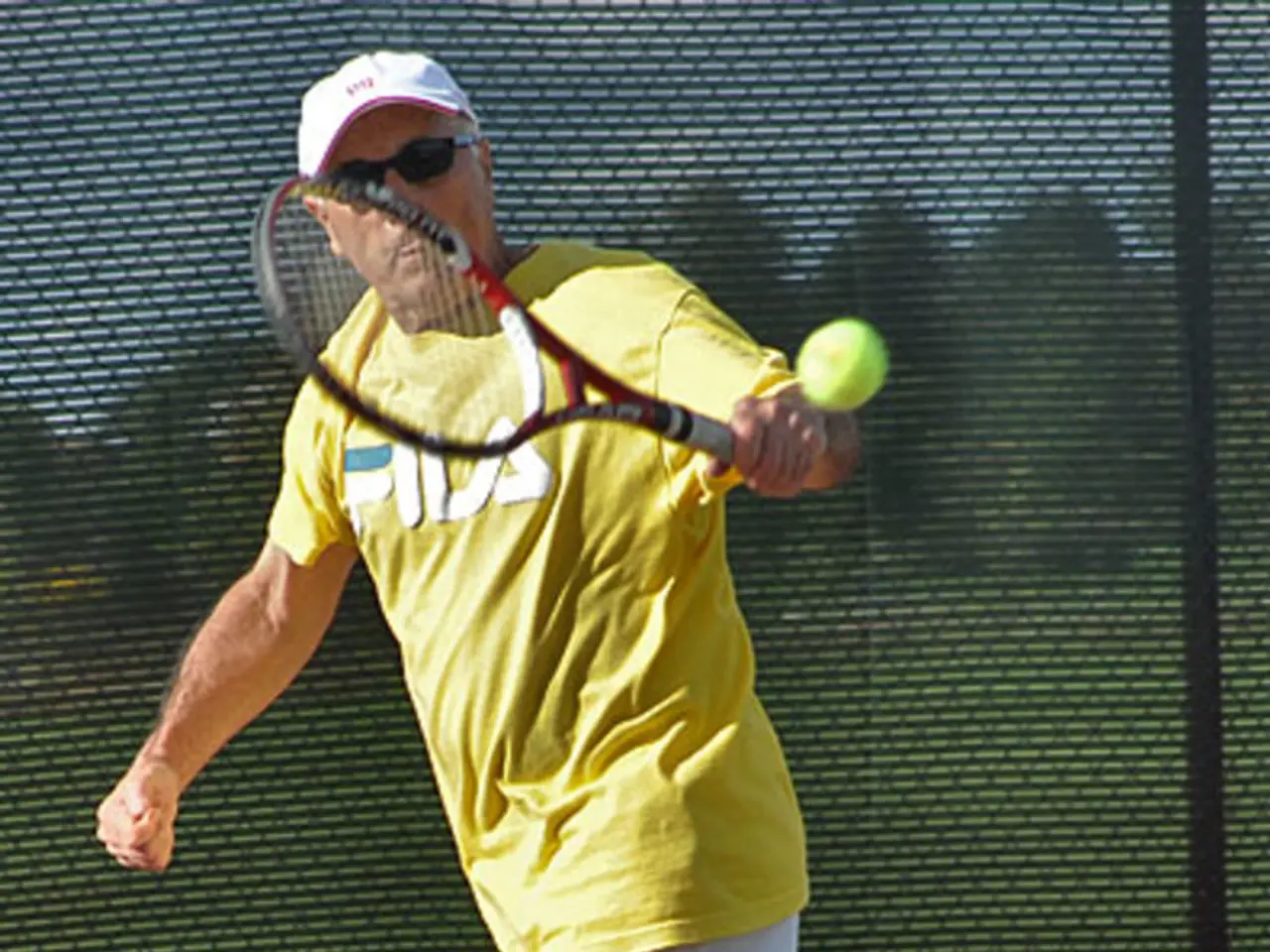Celebrating Roger Federer's birthday: 4 breakthrough match memories on the court
Roger Federer's Historic Career and Iconic Matches
Roger Federer, one of the greatest tennis players of all time, has left an indelible mark on the sport with his record-breaking achievements and captivating style. Spanning 24 years, his career included 20 Grand Slam singles titles and 103 ATP Tour titles, making him one of the most successful players in the history of men's tennis.
Federer's first Grand Slam title came at Wimbledon in 2003, where he defeated Mark Philippoussis in the final. This win marked the beginning of a series of remarkable accomplishments, including eight Wimbledon titles, six Australian Opens, five US Opens, and one French Open. He reached 31 Grand Slam finals, the second most ever, and became the third man in the Open Era to capture all four major titles with his win at the 2009 French Open.
One of Federer's most memorable matches was the 2008 Wimbledon final against Rafael Nadal. The match, played out over nearly seven hours due to rain delays, is considered arguably the greatest tennis match ever played. Despite Federer's serve-and-volley formula being considered one of the best chances for success at one point in time, a 22-year-old Nadal emerged victorious, marking a significant shift in the tennis landscape. Federer admitted that Nadal was "maybe hungrier" in their iconic clash.
Another milestone in Federer's career came in 2017, when he won the Australian Open as the 17th-ranked player, defeating Nadal in a thrilling five-set final. He also won the record-breaking eighth Wimbledon title without dropping a set in 2017.
Federer's career was marked by resilience and determination. In the 2009 Wimbledon final, he clawed back after dropping the first set to defeat Andy Roddick in an epic 16-14 fifth set, a record for the longest fifth set in a Grand Slam final. His win at the 2009 French Open was his 14th major title, matching Pete Sampras's record.
Federer's style of attacking tennis, which relied on exceptional shot-making, powerful groundstrokes, and precise volleys, has inspired several emerging players. A notable moment in the 2003 Wimbledon final was a sequence of a half-volley, wide-angle groundstroke, and a blistering forehand down the line by Federer.
Throughout his career, Federer earned numerous accolades, including being ranked world No. 1 for 310 weeks, winning 28 Masters 1000 singles titles and 24 ATP 500 titles, and earning Olympic medals in doubles and singles. He was also named ATP Player of the Year and ITF World Champion five times each, received a record 13 ATP Sportsmanship Awards, and was voted ATP Fans’ Favorite for 19 consecutive years.
Federer's contributions to tennis extend beyond his on-court success. He played a significant role in popularizing tennis during the "Golden Age," contributing to increased global interest and prize money. After retiring in 2022 following knee surgeries and a final doubles match with Nadal at the Laver Cup, Federer's legacy as one of the greatest tennis players of all time remains undisputed.
In his extraordinary career, Roger Federer showcased his tennis prowess in various Grand Slam tournaments, with sports like tennis being the platform for his record-breaking achievements. His first Grand Slam title in 2003, a victory at Wimbledon, marked the start of a reign that saw him win 20 Grand Slam singles titles in tennis, making him one of the most successful players in the history of men's tennis.








